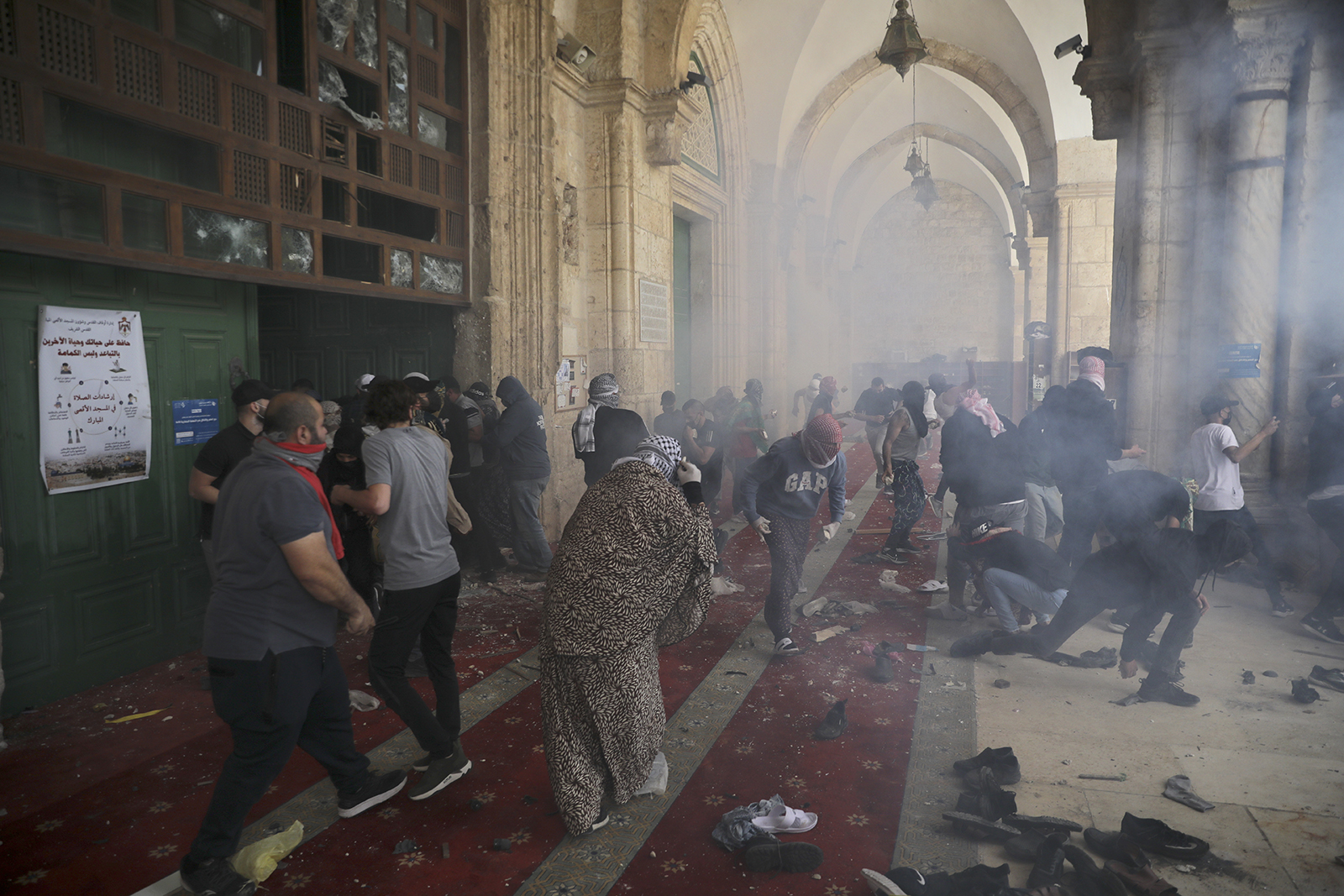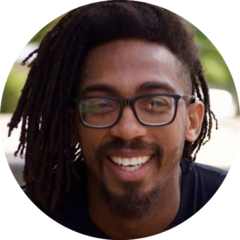(RNS) — The state of Israel wants you to think it’s a democracy. But the people it has oppressed for 75 years tell a different story.
On Wednesday (May 15), Palestinians in the occupied territories cautiously observed the 76th annual March of Return to commemorate the Nakba — an Arabic word for “catastrophe” that alludes to their mass displacement by Israeli governments since before the state’s founding in 1948.
You may have missed the demonstration, even if you were in the Holy Land, as I was, on Nakba Day. I had come as one of a delegation of American storytellers, and the kaffiyeh I had wrapped around my neck in solidarity with Palestinians was one of the few such signs on the street. Since Oct. 7, the threat of violent reprisals against pro-Palestinian sentiment has grown more severe, discouraging public expressions of grief about the occupation, even as the world watches Israeli forces decimate Gaza.
Sabeel, a liberation theology center, had invited us to bear witness and hear Palestinians relate their stories of life in the occupied territories. Some had experienced the Nakba firsthand. Their stories suggest that the most just denouement to the Palestinian people’s encounter with colonial oppression is to make Israel Palestine again.
Over dinner on our first night in East Jerusalem, Cedar Duaybis, co-founder of Sabeel, and other elders recalled warm memories of peaceful relations among Jews, Christians and Muslims before the Nakba. “My dream for a future Palestine is that it would be like my memories of Haifa — secular, pluralistic,” she told us.
Her memories echo the history attested to by most any Palestinians old enough to remember: Before Zionism prevailed in the region, Indigenous Jews, Muslims and Christians seemed to identify with an underlying Palestinian identity that connected them all. “The only difference between us was where we chose to worship,” one man told us as we toured holy sites.

The 1948 expulsion of Palestinian women and children from Tantura to Furaydis. (Photo by Benno Rothenberg/Meitar Collection/National Library of Israel/The Pritzker Family National Photography Collection/CC-BY 4.0)
Another Nakba survivor, named Yaqub, led us through the ruins of Lifta, now an Israeli national park, but Yaqub’s hometown before Zionist forces invaded it in 1947. Yaqub’s voice shook as he showed us the remains of his mother’s home, recalling the sights and smells of his childhood. “They explode our holy place,” he said to me as he showed us the remnants of the local mosque, “but it doesn’t count as antisemitism since we’re not Jewish,” he quipped.
Yaqub is one of many voices in a choir of Palestinian lament. They speak of “a silent war” on Palestinians outside of Gaza, meant to make life so unbearable that they’ll leave the region voluntarily. “Every single person here needs a lawyer,” a Palestinian human rights researcher explained, “because the government has a problem with every person here.”
They speak of random home searches by Israeli forces. A young historian walks us along the light rail separating East and West Jerusalem, explaining how that boundary shapes the de facto segregation of the Israeli transportation system. A theologian points to the pine trees that line the hills of the Holy Land, imported by Canadian settlers though they are poisonous to the soil and easily catch fire in the Mediterranean heat. Nets hang overhead in the old city of Hebron to catch rocks settlers hurl from their windows at Palestinian pedestrians below.
In almost every conversation, a Palestinian mentions the bureaucracy that prevents Jerusalemites from marrying people from West Bank.
At the Al-Aqsa Mosque complex, one of the holiest sites in Islam, the signs of disrepair — broken windows and cracked doors, but also bullet holes from repeated attacks — result from the Israeli government’s refusal to grant permission to make repairs. It’s impossible to stand in Al-Aqsa and witness its wounds — as I did just days before it endured the most recent attack from Israeli extremists — and not think of the violent disrespect of white supremacists for Black houses of worship in the United States.
The scope of the occupation is too great to detail in a single essay. But any honest person who has witnessed it can recognize that it stands in the same genre of state-making as Jim Crow America and apartheid South Africa and the Nazi German ghettos, which is why survivors and close observers of those regimes — Desmond Tutu among them — have said as much. The Israeli state is trying to wipe out all traces of Palestinian presence, identity and culture in the region.

Palestinians clash with Israeli security forces on May 10, 2021, at the Al-Aqsa Mosque compound in Jerusalem’s Old City. (AP Photo/Mahmoud illean)
People who reflexively invoke Israel’s right to exist to derail conversations about Zionist oppression conflate the right of a nation to exist with the right to oppress, something no nation has. The fact that they can’t fathom the state of Israel without systematic oppression is damning and revelatory. Because it betrays that, just as racial violence is endemic to U.S. society, racial violence is endemic to the state of Israel. And if racial violence is endemic to the state of Israel’s existence, it can’t exist as a democracy.
A secular, pluralistic state is the only way democracy will truly be present in the region. In so many of our conversations, Palestinians echoed this truth: A religious state can’t be a democratic state, regardless of the religion. Many of America’s founding fathers knew this, which is why they pushed for religious pluralism in the United States. The fact that Israel holds elections doesn’t make it a democracy. It is openly trying to create a state with a Jewish majority and gives Jewish people preferential treatment, which makes its claim to democracy dubious.
To be sure, making Israel the Palestine that people like Duaybis remember would be so daunting a political project that it’s tantamount to impossible. Duaybis confessed she was resigned to the impossibility of that dream. “Palestinians are willing to accept the minimum amount of justice,” she said. “A two-state solution isn’t the most just option, but it’s the most realistic. We’ll take the smaller state.”
But the only reason Duaybis’ generation is resigned to the idea of a two-state solution, despite the obvious injustice of it, is because the Israeli state has so thoroughly proved its unwillingness to live with Palestinians as equals — as proved by the current onslaught of Gaza — and the world community has refused to support Palestinian liberation for so long.
Yet a younger generation of Palestinians may have the radical imagination to envision a way forward. Sipping coffee in the Old City of Jerusalem, a young Palestinian theologian who works at Sabeel invoked the Black theologian James Cone to put forward a solution. “The settlers must become Palestinian,” he said, conceding that the settler project has become too entrenched to be simply reversed.
For him this means listening to the land and the people of the land. A free Palestine is possible if Indigenous Jews who’ve succumbed to Zionist ideology can reclaim their Arab roots and European Jews relinquish the quest for supremacy and become Arab. Call his vision outlandish, but at least it aspires beyond “the minimum amount of justice.”






